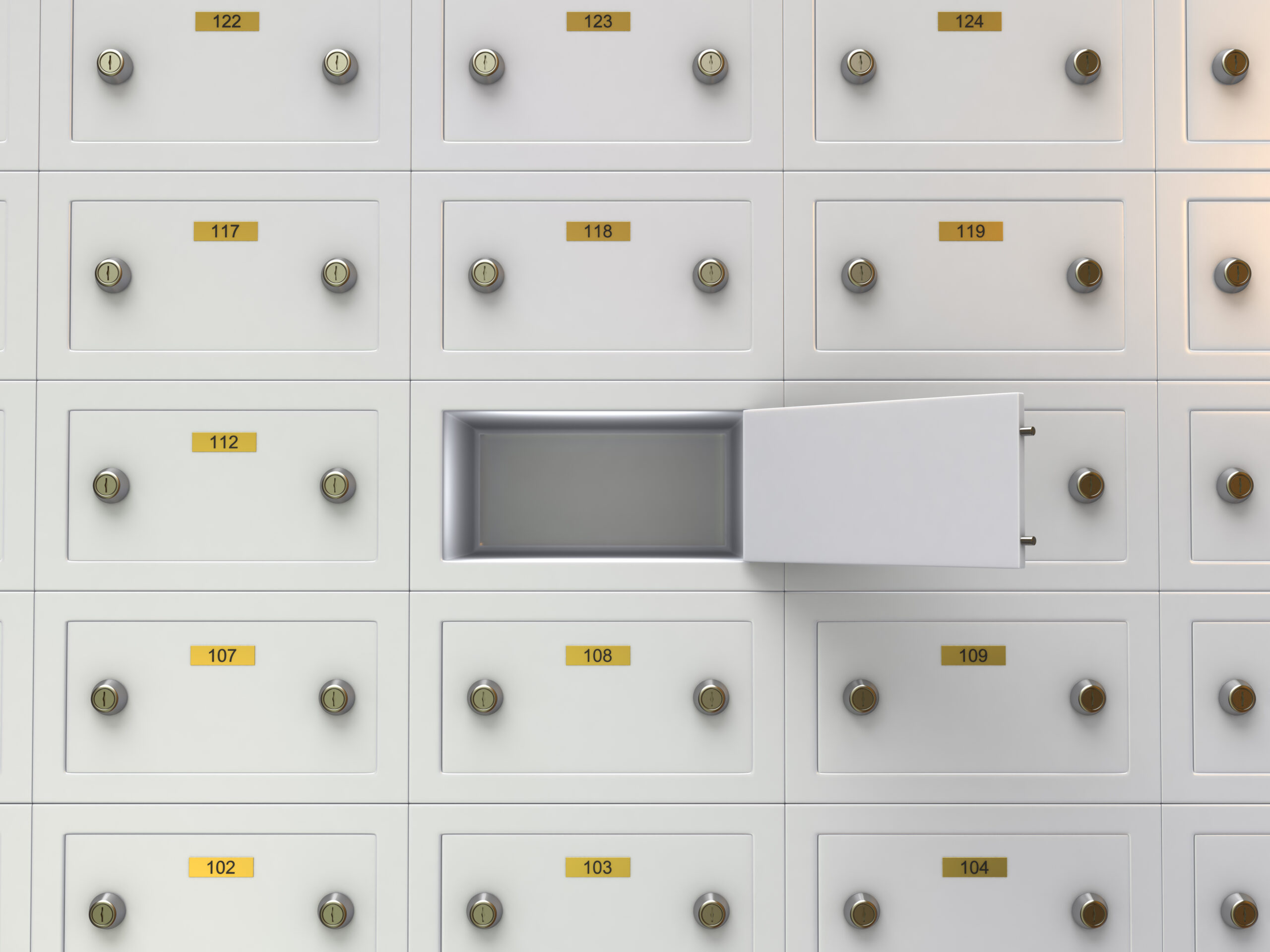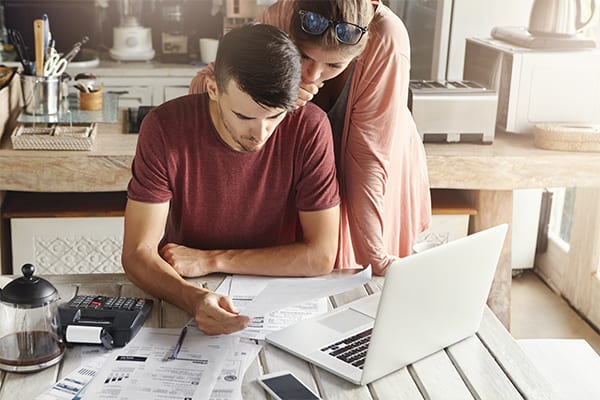With the help of modern technology, home security systems have made big advances in recent years, helping to protect residences and their contents from leading threats like burglary and fire.
But when personal belongings and valuables require the utmost in security, it’s hard to match the level of protection provided by an in-bank safe deposit box. Read on to learn more about how safe deposit boxes work, some of their leading benefits, the best things to keep in a safe deposit box, and how to get your own.
How safe deposit boxes work
Also referred to as “safety deposit boxes” by some, safe deposit boxes are highly secure containers that are typically made out of a thick, hard-to-penetrate metal. Usually kept locked up in the vaults of banks or credit unions, they are often available for banking customers to rent in an array of sizes.
To help ensure the highest levels of security for their safe deposit boxes, most banks and credit unions employ a dual-key system to protect them. To gain access to one of the oxes, a banking customer must be led through a vault door that is typically opened with an electronic or physical key, then use a separate physical key provided by the bank or credit union to access the safe deposit box itself.
Adding an additional layer of protection, banks and credit unions also often require that an authorized signature be provided before granting a customer access to the vault. (Upon signing up for his or her safe deposit box, a customer is typically asked to provide the signatures of all people for whom they approve access to the box, and the bank or credit union keeps all of these customer-provided signatures on file.)
The leading benefits of using a safe deposit box
Of course, with all of the above-mentioned layers of protection in place, a safe deposit box is typically a much more secure place to store important personal items and cherished valuables than anywhere in the home. (A safe deposit box is certainly more secure than a file cabinet or dresser in the typical home — and considering the extremely limited access granted to a safe deposit box, it usually offers even more protections than an in-the-home safe for storing hard-to-replace items.)
Further, when items are stored away in a safe deposit box, the owner always knows exactly where they are — and they’re much less likely to end up being misplaced than items kept in the home might be. And with such strictly controlled access granted to a safe deposit box, there’s little to no worry that items stored in them can be retrieved by anyone other than those authorized to get into the box.
What to keep (and not keep) in a safe deposit box
The best things to keep in a safe deposit box are items that would be hard (or impossible) to replace and that aren’t typically needed on a regular basis. These can include important personal documents, sentimental objects and valuables such as:
- Birth certificates or adoption papers
- Death certificates
- Marriage licenses
- Real estate deeds
- Copies of lease agreements
- Car titles
- Other important legal documents
- Diplomas
- Important business contractsand paperwork
- Paper stock or bond certificates
- Insurance policies
- Jewelry, sentimental photos and other family heirlooms
- Stamp or coin collections
- Other rare collectibles
On the other hand, items that the owner of a safe deposit box might need to access more frequently or at a moment’s notice are typically better kept in a safe place in the home. Some of the things best not kept in a safe deposit box include:
- Passports
- Social Security cards
- Vaccination cards
- Powers of attorney
- Medical directives
- Living wills or a last will and testament
- Cash (which is best stored in a bank’s deposit account such as a checking or savings account, where it will be FDIC insured)
Items that typically aren’t allowed to be stored in a safe deposit box include drugs, firearms, weapons, ammunition, hazardous or explosive items, and human remains.
How to get a safe deposit box
To get your own safe deposit box at Arthur State Bank, contact a local branch to make an appointment, or simply drop in during business hours. Our branches offer highly secure safe deposit boxes ranging in sizes, with annual rental fees varying by box size and location. And for added convenience, safe deposit box fee payments can be automatically drafted from an Arthur State Bank checking or savings account.
Proudly serving South Carolina since 1933, Arthur State Bank offers accounts and services to meet a variety of financial needs. To help you achieve all your financial goals, the bank offers in-person service as well as a range of convenient digital solutions. To learn how Arthur State Bank can help you with banking needs ranging from checking and savings to retirement accounts, mortgages, other personal loans and more, visit arthurstatebank.com.






















